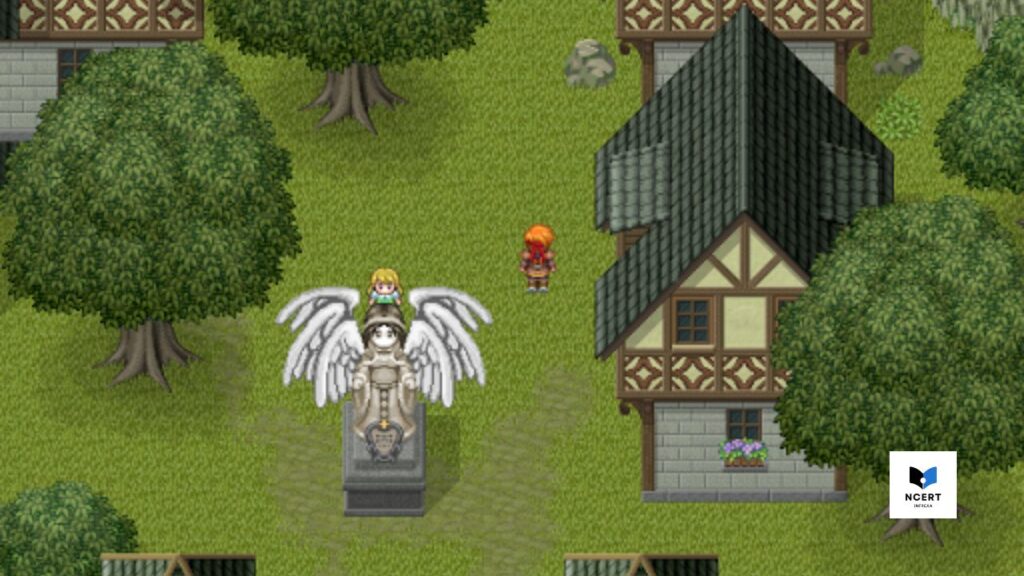Role-playing games (RPGs) are a type of game where players take on the roles of characters in a fictional world. In these games, participants use their creativity to make decisions and interact with the game’s story, often guided by rules and a game master.
RPGs can be tabletop (played with pen, paper, and dice), live-action, or video games. The focus is on storytelling, character development, and collaborative exploration of imaginary worlds.
Types of Role-Playing Games
These games come in various formats, including tabletop, live-action, single-player, and multiplayer. Players use tools like dice, miniatures, and maps to determine outcomes, and characters often progress, gaining new abilities over time.
For example:
1. Tabletop RPGs: In these traditional RPGs, players gather around a table and use dice, miniatures, and rulebooks to determine outcomes and guide their characters through shared stories. Classic examples include Dungeons & Dragons, Pathfinder, and Call of Cthulhu.
2. Live-Action RPGs (LARPs): Players physically embody their characters in real-world settings, engaging in interactive combat, immersive role-playing, and collaborative storytelling. Games often span hours or even days.
3. Single-Player RPGs: These digital games offer solo adventures where players control individual characters through immersive storylines, character progression, and exploration. Popular examples include The Witcher, Fallout, and Dragon Age.
4. Multiplayer RPGs: These digital games allow players to team up or compete online, with character progression, social interaction, and shared adventures being central to the experience. Examples include World of Warcraft, Destiny 2, and Final Fantasy XIV.
How to play Role-Playing Games?
Players use tools like dice and gaming aids such as miniatures, tokens, and maps to determine outcomes in RPGs, which can be played cooperatively or competitively. Participants take on character roles, interacting within the game world. Characters progress by leveling up, gaining new abilities and increasing power over time.
Playing RPGs is an exciting adventure with friends – choose a game like Dungeons & Dragons, create a character with a captivating story, and learn basic rules like dice usage.
Immerse yourself in your character, collaborate with others, and follow the Game Master’s lead. Just have fun, let your imagination soar, and enjoy the collective journey in the fantasy world you shape together!
Read: Unblock Roblox and play your favorite RPGs
The History
Let’s explore the story of Role-Playing Games (RPGs), where imagination takes center stage:
Early Days (Before the 1970s)
- Humble Beginnings: Picture people sitting around tables, sharing stories and pretending. It all began with games mimicking real battles and turning into fantastical adventures.
- Paper & Pencil Powerhouses: Games like Kriegsspiel and Chainmail set the stage, introducing rules and numbers to guide these playful stories.
The Golden Age (1970s-1980s)
3. Dungeons & Dragons Explodes: In 1974, Dungeons & Dragons (D&D) burst onto the scene, making RPGs official with rules, character sheets, and iconic dice rolls. Dragons, magic, and exciting adventures captured imaginations worldwide.
- Beyond the Dungeon: Other RPGs like RuneQuest and Call of Cthulhu explored different genres like sci-fi and horror, making RPGs a diverse storytelling medium.
Digital Dawn (1980s-2000s)
5. Pixels & Power-Ups: Computers entered, turning RPGs into digital worlds. Games like Ultima and Wizardry led the way, while Baldur’s Gate and Final Fantasy pushed the limits of storytelling and graphics.
- MMORPG Mania: Massively Multiplayer Online RPGs (MMORPGs) like World of Warcraft connected players globally, creating virtual worlds filled with collaborative adventures and social interaction.
Modern Era (2000s-Present)
7. Indie Explosion: Independent developers brought new ideas and diverse stories to RPGs. Games like Undertale and Disco Elysium challenged traditional RPG norms, exploring emotional storytelling.
- Digital Tabletop Renaissance: Online platforms like Roll20 and Fantasy Grounds revived love for tabletop RPGs, providing virtual spaces for friends to gather, roll dice, and adventure together online.
Pros and Cons of Playing RPGs
While RPGs have proven benefits, such as enhancing problem-solving and social skills, providing escapism, and offering educational insights, there are also potential drawbacks.
Some players may find the gameplay slow or repetitive, and not everyone appreciates fantasy or science-fiction elements. Excessive investment in characters can lead to real-life issues, and RPGs can be addictive and time-consuming.
The Future Unfolds
The future of RPGs is filled with endless possibilities. Virtual reality could immerse us in fantastical worlds like never before, while artificial intelligence could create even more dynamic and responsive stories.
One thing’s certain: the human need for shared stories and the thrill of inhabiting imaginary worlds will never fade.
So, whether you’re a pro or just starting, join the RPG world – a place of imagination and endless stories waiting to be told.
Conclusion
RPGs provide a diverse and immersive way to spend time, offering a range of gaming experiences that cater to various preferences and interests.
Whether playing solo or with friends, there’s an RPG suited to individual needs. With numerous options available, finding the perfect RPG for a unique gaming experience is easily achievable.
Recommended for you:
